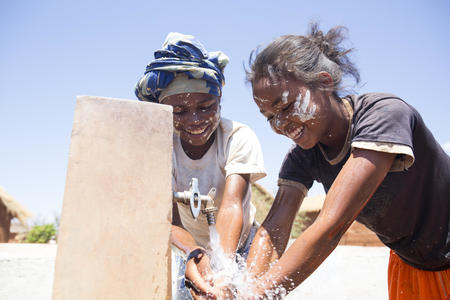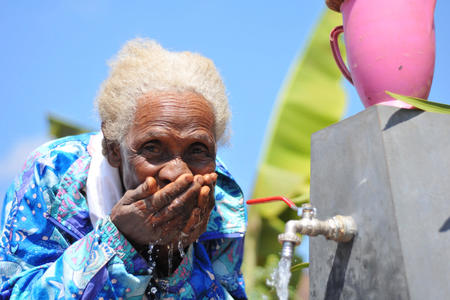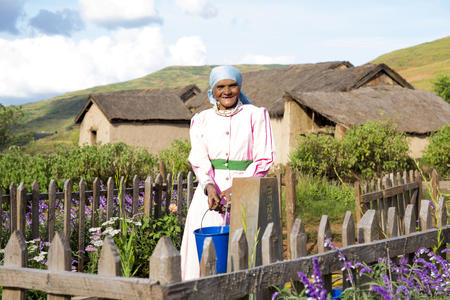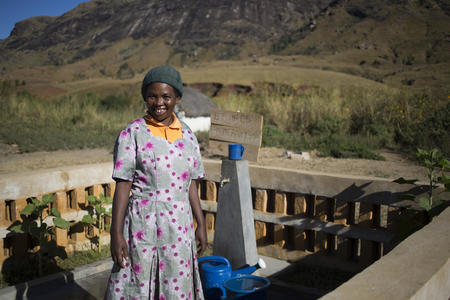13.8 million people don't have clean water.
13.8 million people don't have clean water.
That's almost half the population.
25.2 million people don't have a decent toilet.
25.2 million people don't have a decent toilet.
That's around 9 in 10.
Almost 1,800 children under five die a year from diarrhoea.
Almost 1,800 children under five die a year from diarrhoea.
Caused by dirty water and poor toilets.
Our work in Madagascar
We’ve been getting clean water, decent toilets and good hygiene to people in Madagascar since 1999.
We strengthen the skills of national and local officials, get the different government ministries working together, and fight to put hygiene at the top of the agenda. We empower people to demand their rights. And we show others how to scale up our approach, so even more people can benefit.
Making history, village by village
We’re determined to reach people in the remotest and most overlooked places.
Many of the places where we work are so remote, there are no proper roads to reach them. We share our expertise in technologies like gravity flow piping, reservoirs and boreholes to build sustainable, climate-resilient water systems – and their impact is transformative.
Providing people with the tools they need to speak out
If they're not built in the right way, toilets and water facilities can exclude people with disabilities. In Morondova, we train local group members, like Saidson, to demand that authorities provide services for everyone. Now, these toilets can be accesssed by all.

Supporting women to become financially independent
As part of our ongoing work bringing clean water and sanitation to Manjakandriana, we’ve been supporting local residents – many of whom earn less than $1 a day – to set up and manage their own village savings and loan associations (VSLA).
One such association is Soafiary (meaning ‘good things are grown and saved’) in the village of Volavy. Members contribute what they can each week, then take loans when they need to, so money's no longer a worry when it comes to things like school fees or home repairs.
As well as financial security, the group gives women the chance to come together, take ownership of their finances, and challenge traditional beliefs about their roles as home-makers.

Giving children time to learn
Clean water can transform a child's future.
Before the arrival of clean water, daily life in the remote village of Tsarafangitra was a struggle. Children were often sick, leaving parents with no choice but to spend what little money they earned on medicine. Time spent collecting water was time taken away from work and education.
Since we built toilet blocks and a gravity-flow water scheme in 2018, the village has transformed. Thanks to the community fountains, children no longer waste hours fetching dirty water. They don’t miss as many lessons because they’re ill. And drinking water and toilets at school mean pupils can concentrate on their lessons.
Access to these essentials has given children the opportunity to play, to learn – and to dream of the future.
Curbing the spread of COVID-19
With so many people still without clean water, COVID-19 gives our work even more urgency. We’ve been running public hygiene campaigns and installing contactless handwashing devices in markets, health centres, government offices and schools, like this one in Analamanga.




